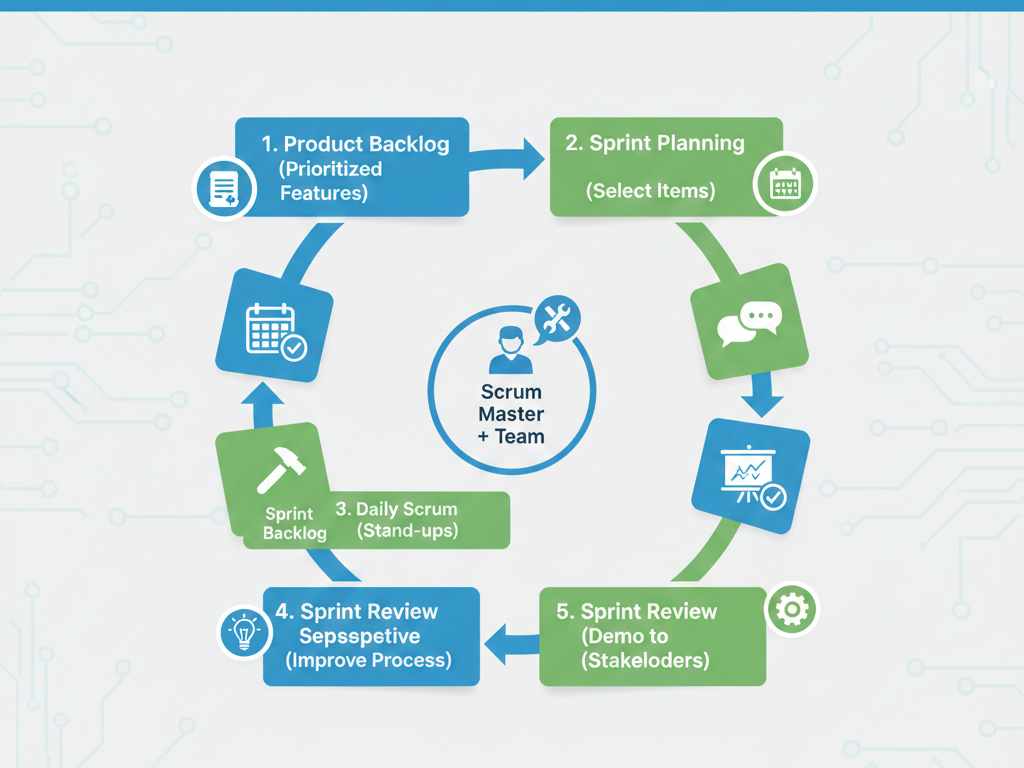In today’s fast-paced digital ecosystem, businesses are increasingly reliant on online strategies to reach their audience. But when it comes to executing these strategies, there’s often confusion around the roles of a Digital Marketing Manager, an SEO Specialist, and a Social Media Manager. While these roles share the common goal of boosting brand visibility and engagement, each operates in a specialized domain with distinct responsibilities, tools, and career paths.
At Curiosity Tech, we’ve worked with hundreds of businesses and budding professionals to clarify these roles and build career-focused digital marketing strategies. By understanding these roles in depth, businesses can make informed hiring decisions, while professionals can align their skills with the right career path.
- Digital Marketing Manager

A Digital Marketing Manager (DMM) acts as the captain of a company’s online marketing ship. Their role is strategic, analytical, and integrative, overseeing multiple campaigns and ensuring they align with the business objectives.
Key Responsibilities:
- Developing and implementing comprehensive digital marketing strategies.
- Managing cross-functional teams, including SEO, content, social media, PPC, and email marketing.
- Analyzing campaign performance metrics and ROI.
- Collaborating with designers, developers, and copywriters to ensure brand consistency.
- Budget planning for digital campaigns and paid ads.
Skills Required:
- Leadership and project management
- Analytical thinking and data-driven decision-making
- Strong understanding of SEO, social media, email marketing, and paid media
- Familiarity with marketing automation tools and analytics platforms
Career Growth: Digital Marketing Managers often move up to roles like Head of Marketing, Marketing Director, or even Chief Marketing Officer (CMO), overseeing the entire marketing division.
- SEO Specialist

An SEO Specialist focuses exclusively on increasing a website’s visibility on search engines. Unlike a DMM, their role is more technical and analytical, requiring a deep understanding of search engine algorithms and user behavior.
Key Responsibilities:
- Conducting keyword research and competitive analysis.
- Optimizing website content, meta tags, and backlink profiles.
- Monitoring website performance using tools like Google Analytics and SEMrush.
- Creating SEO-friendly content strategies to increase organic traffic.
- Keeping up with updates to search engine algorithms.
Skills Required:
- Technical SEO knowledge (site speed, schema markup, crawling, indexing)
- Keyword research and content optimization
- Analytical skills to track traffic and performance metrics
- Understanding of local and international SEO trends
Career Growth: SEO Specialists can evolve into SEO Managers, Content Marketing Strategists, or eventually a Digital Marketing Manager, particularly if they gain broader digital marketing expertise.
- Social Media Manager

A Social Media Manager (SMM) is the voice and personality of the brand online. While the DMM sets strategy, the SMM executes, interacts, and ensures engagement across platforms like Instagram, LinkedIn, Facebook, Twitter, and TikTok.
Key Responsibilities:
- Creating and scheduling engaging content for social media channels.
- Monitoring audience engagement and responding to comments/messages.
- Running social media campaigns, contests, and paid ads.
- Tracking metrics like reach, engagement, conversion, and follower growth.
- Collaborating with designers, copywriters, and influencers.
Skills Required:
- Creativity and storytelling
- Proficiency in social media tools like Buffer, Hootsuite, or Meta Business Suite
- Analytical skills to measure campaign success
- Trend awareness and ability to adapt content to different platforms
Career Growth: Social Media Managers can progress to Social Media Strategists, Community Managers, or even transition to Digital Marketing Manager roles by expanding their knowledge in SEO, paid ads, and analytics.
Hierarchical Role Diagram
| Role | Focus Area | Key Skills | Career Progression |
| Digital Marketing Manager | Overall Strategy | Leadership, Analytics, Multi-channel Expertise | Head of Marketing → Marketing Director → CMO |
| SEO Specialist | Search Engine Optimization | Technical SEO, Keyword Research, Analytics | SEO Manager → Digital Marketing Manager |
| Social Media Manager | Brand Engagement & Social Content | Content Creation, Engagement, Analytics | Social Media Strategist → Digital Marketing Manager |
Infographic Concept: Imagine a funnel-shaped visual showing the three roles feeding into the larger umbrella of “Digital Marketing Success” — DMM at the top as strategist, SEO Specialist on the left optimizing web presence, and SMM on the right handling social engagement.
Choosing the Right Role
- Passion for Strategy & Leadership: Digital Marketing Manager
- Analytical & Technical Mindset: SEO Specialist
- Creativity & Community Engagement: Social Media Manager
It’s worth noting that at modern agencies and companies like Curiosity Tech, professionals often cross-train to acquire hybrid skills. For example, an SMM might learn SEO to increase content visibility, or an SEO Specialist might gain social media insights to drive engagement.
At Curiosity Tech, we provide workshops, training programs, and mentorship to help professionals navigate these career paths effectively, ensuring their skills match industry demands.
Conclusion
Understanding the nuances between a Digital Marketing Manager, SEO Specialist, and Social Media Manager is crucial for both businesses and career aspirants. While the DMM sets the strategy, SEO Specialists optimize visibility, and SMMs amplify brand presence. Each role is indispensable, and mastering one or more can significantly accelerate career growth in the dynamic digital marketing landscape.
At Curiosity Tech, our aim is to bridge the gap between knowledge and practice, helping professionals enhance their digital marketing expertise while empowering businesses to maximize online ROI. Whether you’re exploring a career or seeking a team to scale your digital efforts, understanding these roles is the first step toward informed decisions.



